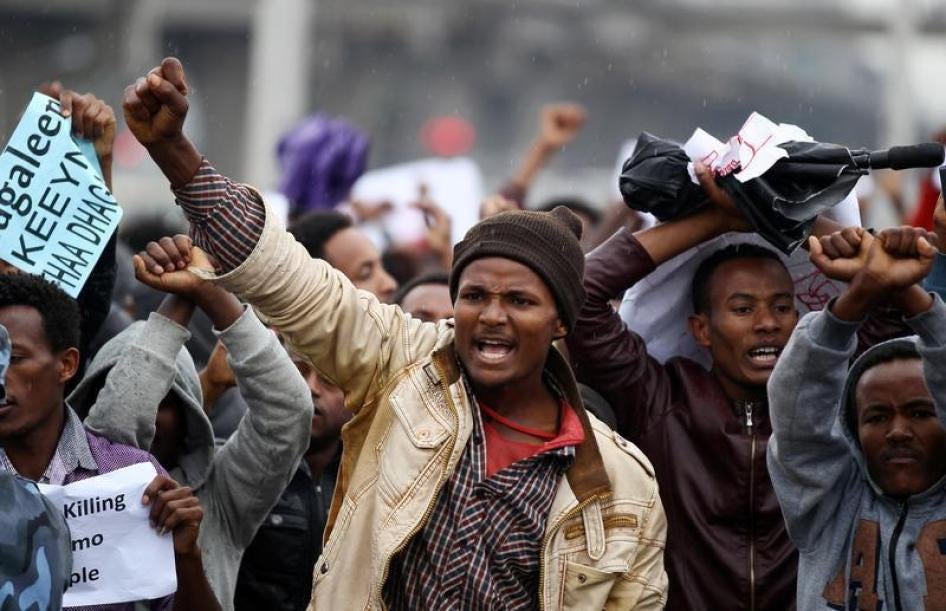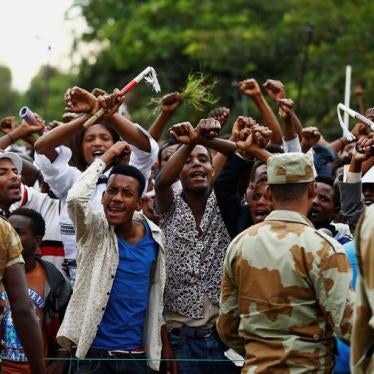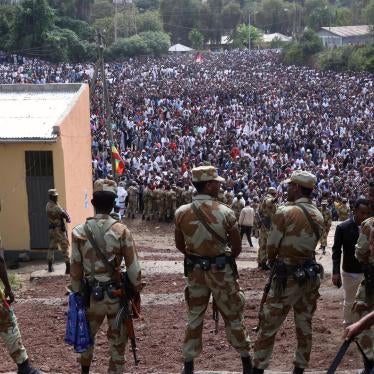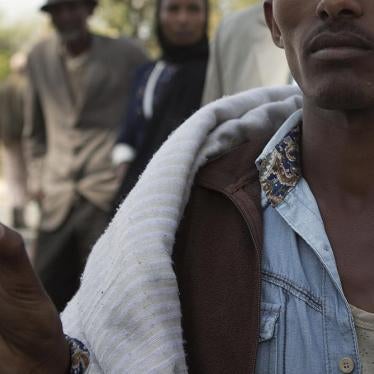As anti-government protests spread across Ethiopia’s Amhara and Oromia regions last weekend, state security forces once again used lethal force to break them up – killing as many as 100 unarmed protesters.
Some governments, including the United Kingdom, have decided to wait for the outcome of an investigation by Ethiopia’s national Human Rights Commission into the government’s response to protests in the Oromia and Amhara regions before deciding how to act. In its oral report to parliament in June, however, the commission concluded that the level of force used by security forces in Oromia was proportionate to the risk they faced from protesters.
Days earlier, Human Rights Watch had reported that excessive use of force resulted in the killing of an estimated 400 people during the protests in Oromia – and that the response was anything but proportionate.
The Human Rights Commission has a history of close ties to the government.
That combined with the well-established absence of accountability for security forces underscores the need for an international investigation.
One now-former federal police officer involved in quelling the protests laughed when I asked him in May if he knew of any officers held to account. “We can do whatever we want to stop the protests,” he said. “It is only our families and communities who shame us and make us feel guilty for how we act against our people.”
Ethiopia has been hostile to outside scrutiny of its rights record. Despite its June election to the UN Security Council and its membership of the Human Rights Council, it has refused entry to all UN special rapporteurs since 2007 – including the UN special rapporteur on the rights to freedom of peaceful assembly and of association.
The United Nations and allied governments should press Ethiopia to stop using excessive force against protesters, and to hold those responsible to account, regardless of rank. They should press the Ethiopian government to allow international observers to investigate abuses before Ethiopia slides into an even more dangerous and irreversible political and human rights crisis.
On August 29, 2016, the Ethiopian embassy in Washington DC submitted a letter responding to this dispatch to Human Rights Watch.









